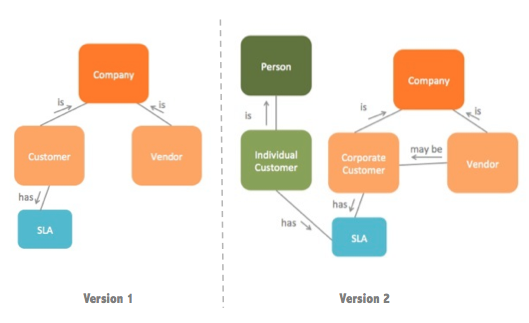Part 2: How to develop confidence in your abilities and establish yourself as a valuable team member while still learning a new business domain
This is Part 2 of a 3-part series -- read also Part 1: How Not to Feel Incompetent or Overwhelmed When Changing Industries and Part 3: Getting the Job Without Previous Industry Experience.
Many business analysts fail to achieve top performance while starting to work on a new domain simply because of their fear of making mistakes. I’ve heard analysts freely admit that looking less than competent is what they fear most. “I don’t know what I don’t know” they will tell me, “and in particular in a domain I’m not very familiar with, I’m always afraid I will miss an assumption or an avenue I must address.”
Instead of taking some risk and getting in front of stakeholders to discuss their assumptions early in their projects, these analysts often become victims of analysis paralysis. Their response to the fear of being wrong is to insist on more time, more analysis behind closed doors. In other cases, they’ll do the opposite: afraid to ask the right questions, they’ll plow ahead with the requirements of a proposed solution without understanding the real business need. In both scenarios, their fear of looking incompetent becomes a self-fulfilling prophecy, with the consequences ranging from the project manager getting frustrated with the slow progress of the requirements process to the delivery team starting to ignore the BA’s weak inputs and stakeholders rejecting a solution that doesn’t address the real problem.
But things don’t have to be like that. In addition to using the tips from Part 1 to take advantage of your “novice status” to achieve faster results, here’s what you can do to prevent the fear of failure from getting in your way to becoming a valuable contributor to your team from the get go.
How to develop confidence in your abilities and establish yourself as a valuable team member while still learning a new business domain
Researchers seem to agree that confidence starts with risk, failure, and perseverance. Stanford psychology professor Carol Dweck uses the term “growth mindset”. Many people (women in particular, Dweck tells us) think their abilities are fixed: they’re either good or bad at math, leadership, public speaking, etc. She’s found that the most successful and fulfilled people think in a different way, always believing they can improve and learn new things.
A growth mindset can help us redefine failures as critical learning experiences. Successful people don’t see failure as catastrophic; they see it as a good data point to guide their next attempts. When you are still learning a new business domain, it helps to measure your success by your level of effort and improvement, as opposed to by how fast you get to an optimal solution to the problem at hand.
For example, as long as you are clear about the purpose of your initial models (test assumptions, develop a common mental model of the problem, explore and evaluate options), there is little-to-no risk associated sharing your flawed drafts with stakeholders to validate them. In fact, a “wrong” model may be the fastest way to get to the right solution, because it helps expose flawed assumptions in a way that analytical work done in isolation is unlikely to achieve.

Each time you complete a mini-model of the business problem you’re trying to solve, share it with stakeholders for feedback. This way you can more easily evaluate what’s working and what’s not, and take that insight to your next iteration. The sooner you put your flawed assumptions and interpretations in front of stakeholders, the easier for the right ideas to surface, in a virtuous cycle that leads to the discovery of the characteristics of a usable, valuable, and feasible solution.
# # #
There’s a reason why the slogan “fail fast” became a cliche in the startup world. In the book Fail Fast, Fail Often: How Losing can Help you Win, psychologists and career counselors Ryan Babineaux and John Krumboltz describe how, when unsuccessful people feel unprepared or afraid, they interpret it as a sign that it is time to stop, reevaluate their plans, question their motives, or spend more time preparing and planning. In contrast, successful people understand that feeling afraid or under-prepared is a sign of being in the space for optimal growth and is all the more reason to press ahead.
Most people will experience imposter syndrome and doubt in their abilities at some point during their professional lives. Getting rid of all doubts about our competence is not a prerequisite for high performance as business analysts; having a growth mindset is. Learn to accept flaws in your work in progress, and see failures as critical learning experiences as opposed to something to be shamed of. The journey to becoming a star BAs in a new domain is not about avoiding mistakes and failure, but rather actively seeking opportunities where we can face the limits of our skills and knowledge and learn quickly.
Author: Adriana Beal, Product Management & Business Analysis
Adriana Beal has developed a successful career in business analysis and product management, having lead the investigation of business problems, defined winning solutions, and written requirements documents for a large number complex software projects. She is also the coach of Crafting Better Requirements, a program that has helped hundreds of business analysts improve their requirements documentation and communication skills, and the author of the ebook Measuring the Performance of Business Analysts, which has been adopted by dozens of BA managers interested in improving the performance measurement systems in their organizations. Her most recent ebook, designed to help BAs struggling with getting the right information to analyze and use to specify their solutions, is called Tested Stakeholder Interviewing Methods for Business Analysts.